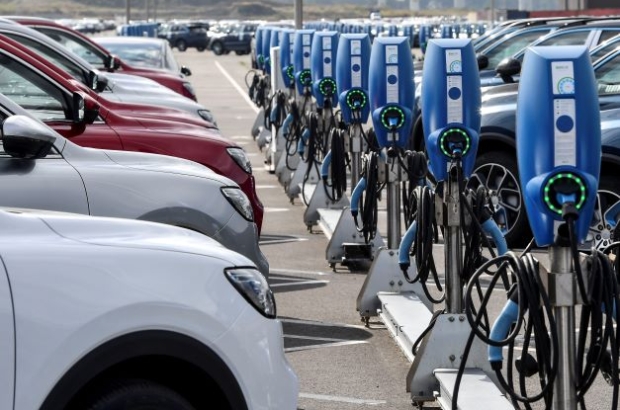- Daily & Weekly newsletters
- Buy & download The Bulletin
- Comment on our articles
Electric cars pose greater risk of accidents, study shows
Electric cars are involved in more accidents than their petrol-powered counterparts, according to an analysis by the Swiss branch of insurer AXA.
The analysis looked at a sample of 1,285 customers and found a significantly greater rate of at-fault accident occurrence, reports RTBF.
“In our statistics, we found that drivers of electric vehicles cause 50% more collisions than cars with combustion engines,” Michael Pfäffli, head of accidents and prevention at Axa in Switzerland told VRT.
“In particular, drivers of powerful electric cars cause twice as many accidents as drivers of standard cars.”
The explanation could lie in an electric car’s responsiveness to a driver pressing the accelerator. For anyone new to electric vehicles, it requires some practice.
“The accelerator pedal is much more sensitive,” explained Laurent Simon, head of property and casualty products at AXA in Belgium.
“These vehicles are on average more powerful than the rest of the car fleet and in addition, electric propulsion generates greater acceleration. You have to learn and be aware of this difference in sensitivity when driving. There's also a braking mechanism as soon as you take your foot off the pedal, so that takes some getting used to as well.”
There are also differences between the two types of motors at play. “It's due to the torque of the motor: the force with which the motor turns the wheels,” Benoit Godart of the Vias Road Safety Institute said.
“In electric motors there is immediate torque, so you use the full power of the engine straight away, which is not the case in a combustion engine where the force builds up as the rpm increases.”
Electric vehicle owners admit being surprised by differences in acceleration
Two out of three electric vehicle drivers in Belgium said they were “sometimes surprised” by the acceleration in their cars, according to a recent Vias survey.
Differences in engines mean drivers must adapt their driving style when switching between cars, Godart says.
“You don't drive an electric car like a combustion car. You have to be aware that you have the full power of your engine at your disposal right away and so you have to drive moderately when you press the accelerator pedal, otherwise you may be surprised and this can have a negative effect on road safety.”
But Sabrina Parant, a journalist specialising in cars and mobility, says the need to adapt one’s driving style isn’t limited to electric versus non electric cars.
“We will have the same problem if you have been driving a combustion model with 80 horsepower for 20 years and suddenly you switch to a sporty combustion model with 350 horsepower in drive,” Parant said.
“You will also have to adapt your driving style and make sure that you remain in control of your vehicle and understand what is going on.”
Parant emphasised that debates on “electric versus combustion” vehicles when it comes to safety miss the greater point: “it is not the vehicle that is dangerous, it is the person behind the wheel who can behave dangerously - it is still the driver's foot that gives the acceleration.”
Parant’s advice is for drivers who change vehicles to take time to learn their new ride. “When you change your vehicle, you have to learn, either by yourself or by using professionals - drivers, instructors. There are training centres that provide training in electric or hybrid vehicles and in eco-driving.”
There are about 70,000 full electric cars (not including hybrids) in Belgium, which represents about 1% of total cars in the country.
While still a tiny minority, the number is increasing rapidly: About 9% of new car registrations have been for fully electric vehicles since the beginning of 2022, meaning about 17,000 cars in seven months.
Last year there were 22,000 full electric car registrations for the whole year.
Photo: Belga/Dirk Waem


















